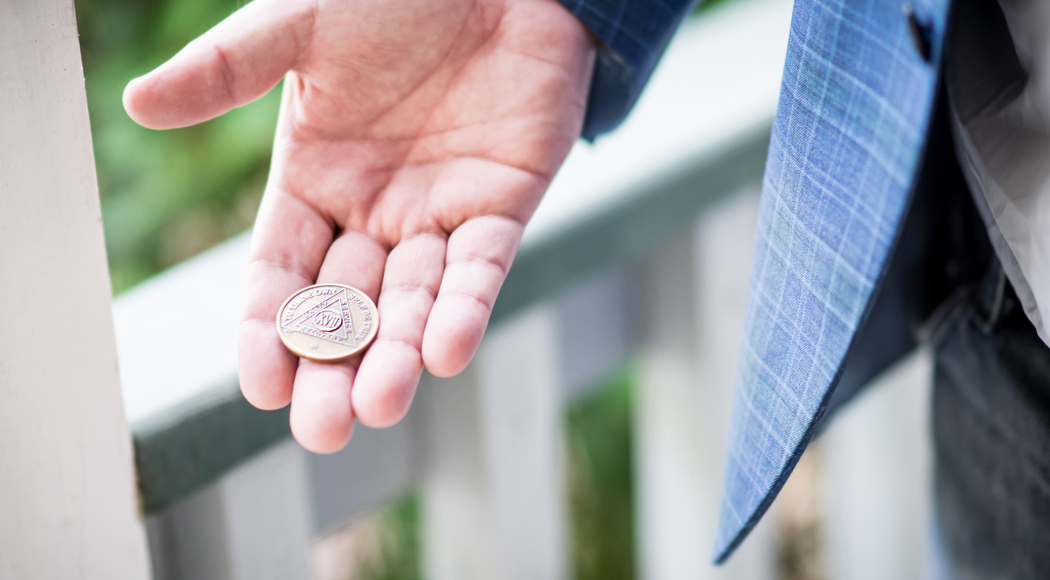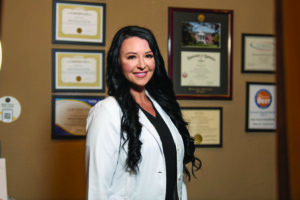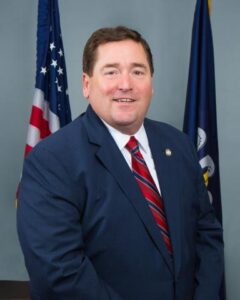Chris McMahon never should have been successful. That’s not a criticism. That’s something McMahon would tell you himself. McMahon spent nearly a decade battling an addiction that almost ended his life. “No one would have bet on me to get sober and become a successful healthcare entrepreneur,” he said. But that’s exactly what happened. Seventeen years after overcoming his own addiction, McMahon is in a much different place these days and is now on a mission to see others set free.
McMahon has assembled a team of experienced and well-respected addiction treatment professionals and is building the Longbranch Recovery Center in Abita Springs. The facility represents a $10 million capital investment. Longbranch will offer high-end, yet highly accessible inpatient and outpatient addiction treatment.
McMahon knows it’s easy for people of all walks of life to develop substance abuse problems. The son of a prominent New Orleans physician, McMahon attended Metairie Park Country Day School and played linebacker on scholarship at the University of San Diego. Next came an injury which required surgery and a prescription for opioid painkillers. Concurrently, his mother was diagnosed with terminal cancer and died at a very young age. Her death was devastating to his family’s dynamic. “To me, her death absolutely collapsed the family structure. Mom had held things together,” he said. Without emotional support, McMahon continued his downward spiral. “I just checked out of all society,” McMahon said. “I was popping Vicodin like candy and drinking every night. I didn’t care. I just wanted to get away,” he said. His addiction and mother’s death essentially split his family, causing significant strife and emotional trauma among his siblings.
After struggling with a serious opioid addiction for the better part of a decade, McMahon got sober in 2000 and began working in the treatment field as a night tech. He spent all of his free time supporting others in Alcoholics Anonymous and advocating on behalf of addiction causes. He eventually began working for a New Orleans hospice agency before stepping out as an entrepreneur, a move that was prompted in part by his father’s death. McMahon’s father received outpatient hospice services, a situation McMahon said was very healing for his family. A grief counselor suggested a “closing out” session with his father. McMahon sat by his bedside and confessed regrets and secrets from the years he spent abusing drugs. The discussion served to heal many past wounds and helped reconnect the siblings after their dad was gone.
“Hospice brought about a radical change of outcomes for my family,” he said. “We were able to get the demons out.” As an advocate for hospice care, McMahon was concerned about the lack of high-quality inpatient hospice facilities on the Southshore. “It seemed to me there was really no one brave enough to build an inpatient hospice in New Orleans,” he said. “I spent a year working at night and on weekends to build pro formas. Then, out of nowhere, a physician called me who knew of my reputation and what I was working on. We met for lunch, and 30 minutes later, we had an LLC.”
Thus was born Passages Hospice. McMahon’s company has gained a national reputation as a leading hospice provider since opening in 2013. The success of Passages gave McMahon the confidence he needed to delve into addiction treatment, a service that’s greatly needed in the Greater New Orleans area. McMahon said Abita Springs was the logical location for an addiction treatment center. People used to make pilgrimages to the town to drink from its aquifer whose waters were thought to possess healing powers.
Working with a team of investors and medical professionals, McMahon purchased the site of the former Longbranch Hotel on Highway 36. The hotel burned down years ago, but the original annex still exists and served as a restaurant for a time. The center is set to officially open in December 2017.
Drawing from a “high-end, small footprint” philosophy, the new center will feature wide, welcoming porches, luxurious furnishings, private bedrooms, therapists’ offices and group meeting rooms. A pool, Japanese meditation garden, activity center, and gourmet restaurant in the original annex will round out the first phase of the project.
“Longbranch will be run by counselors who specialize in treating chemical dependency and trauma,” he said. The center will also offer treatment services for people with dual diagnoses of mental illness and addiction, a specialty that can be difficult to find, McMahon said.
Longbranch Recovery Center will accept private insurance to make its services as accessible as possible to those who need treatment. “I have a very specific inward drive to build a nationally recognized treatment facility, and I’ve surrounded myself with the strongest team in Louisiana,” he said. “It’s high-end, not high cost.”
In conjunction, Longbranch Wellness, an outpatient treatment center, will open in Metairie in November.









